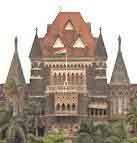Bombay High Court

The High Court of Bombay, which is the chartered High Court and one of the oldest High Courts in the Country. It has Appellate Jurisdiction over the State of Maharashtra, Goa, Daman & Diu and Dadra & Nagar Haveli. In addition to the Principal Seat at Bombay, it has benches at Aurangabad, Nagpur, Panaji (Goa).
The main architect of the Judicial system was Gerald Aungier, the Governor of Surat Factory. He has been described as the "true founder" of Bombay. He was a man with liberal ideas and believed in a impartial administration of justice without fear or favor. But he was conscious of these defects and he was himself dissatisfied with the judicial machinery. Aungier was advised by the Company to select someone knowing something of law from amongst the Company's servants in India. Aungier chose George Wilcox as the Judge and the First British Court of Justice was inaugurated in Bombay in 1672 with due pomp and ceremony. Fawcett quotes a detailed description of the opening ceremony on 8th August
1672.
There was a ceremonial procession from the Fort through the Bazaar to the Guildhall (court-house) in the following order :-
Fifty Bandaries in Green liveries marching two by two.
Centues (Hindus) 20 Mooremen (Muslims) 20 Christians each representing their several caste or sect marching two by two.
His Honour's horse of State led by an Englishman.
Two trumpets and Kettledrums on horse back.
The Justice of the Peace and Council richly habited on horse back. The Governor in his Pallankeen with fower (four) English pages on each side in rich liveries bareheaded surrounded at distance with peons, and blacks.
The Clerke of the Papers on foot.
The flower (four) Atturneys, or Common pleaders on foot
The keeper of the prisons and the two Tipstaffs on foot, bareheaded before the Judge.
The Judge on horse back on a Velvet foot cloth.
His servants in Purple serge liveries.
Gentlemen in Coaches and Palankeens.
On this occasion, he delivered a speech full of very noble sentiments, eulogizing the impartial execution of laws, and exhorting the court to do justice without distinction of nationality or religion, not only in cases between private parties, by even against the government. He promised to protect the Judge in the discharge of his duties to the best of his power and authority. In the concluding paragraph of his speech addressed to the court he said :
"The Inhabitants of this Island consist of several nations and religions, like English, Portuguese and other Christians, Moores and Gentoos, but you, when you sit in this seat of justice and judgment, must look upon them with one single eye as I do, without distinction of nation or religion, for they are all His Majesty's and the Hon'ble Company's subjects as the English are, and have all an equal title and right to justice."
The speech does credit to the character of Aungier. He exhibited a passion for fair, impartial and evenhanded justice. No one could have kept a higher ideal of justice than Aungier. It was a good augury for the judicial system, but unfortunately the later Governors did no to follow Aungier's traditions.
Bombay High Court Address:
The Registrar General , Bombay High Court,
Fort, Mumbai -32.
Some Important links
* Bombay high Court Recent Judgments
* Display Board
* Bombay high Cause List
Landmark Judgments | Famous Trials | Historical Facts | Legal Profession
Law Maxims # Acta exteriora iudicant interiora secreta - Outward acts indicate the inward intent
# Boni judicis lites dirimere est - It is the duty of a good judge to prevent litigation
# Conventio et modus vincunt legem - A contract and agreement overcome the law
Damnum sine injuria - damage without legal injury.
Ex facie - On the fact of it.
Faciendum - Something which is to be done.
Injuria non excusat injuriam - A wrong does not excuse a wrong.
How To Submit Your Article:
Follow the Procedure Below To Submit Your Articles
Submit your Article by using our online form
Click here
Note* we only accept Original Articles, we will not accept
Articles Already Published in other websites.
For Further Details Contact:
[email protected]
File Your Copyright - Right Now!
 Online Copyright Registration in India Call us at: 9891244487 / or email at: [email protected] |
Lawyers in India - Search By City |
|||
|
Delhi Chandigarh Allahabad Lucknow Noida Gurgaon Faridabad Jalandhar Vapi |
Mumbai Pune Nagpur Nashik Ahmedabad Surat Indore Agra Jalgaon |
Kolkata Siliguri Durgapur Janjgir Jaipur Ludhiana Dimapur Guwahati Amritsar |
Chennai Jamshedpur Hyderabad Coimbatore Eluru Belgaum Cochin Rajkot Jodhpur |


 Right Away Call us at Ph no: 9650499965
Right Away Call us at Ph no: 9650499965